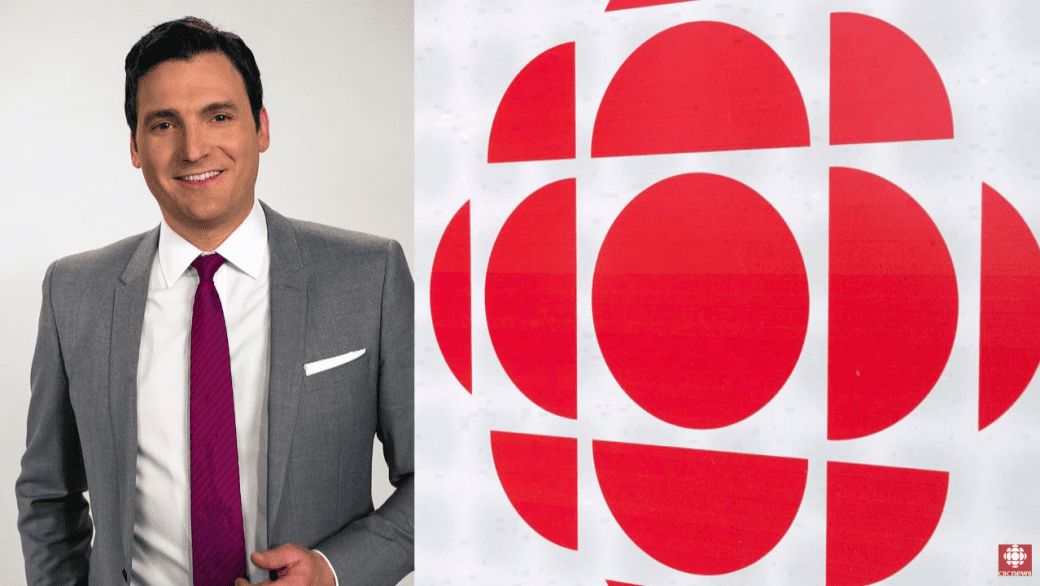A gay Iranian man is suing the CBC and two reporters for allegedly outing him without his permission while he lived in Iran.
Farzam Dadashzadeh, a gay Iranian refugee now living in Vancouver, claims that the documentary led to his family disowning him, a violent assault and imprisonment by Iranian police where he says he was beaten and raped by other prisoners. Dadashzadeh says that he lost his job, was forced to leave school and eventually the country as a result of the broadcast.
None of the allegations have been proven.
The civil claim, which was filed on Aug 15, 2016 in the Supreme Court of British Columbia, alleges that no one asked for Dadashzadeh’s permission to broadcast his face while he was in a café that catered to Tehran’s gay community. The suit names the CBC, Evan Solomon and Farid Haerinejad as defendants.
“It just came to our attention this week and we’re taking some time to consider our options and how to move forward,” says Chuck Thompson, head of public affairs for the CBC.
Evan Solomon did not respond to a request for comment through his Bell Media email and Farid Haerinejad did not respond to a request for comment through his LinkedIn account.
The documentary, Out in Iran: Inside Iran’s Secret Gay World, delves into the repression of Iran’s LGBT community. It chronicles the persecution of queer people in Iran as well as the struggles of LGBT people for civil rights under the present theocratic regime.
Dadashzadeh, who was 19 when the footage was shot, was a university student and hairstylist at the time, and claims he was not out to any of his family members, except for an aunt that lived abroad.
The scenes where Dadashzadeh appear show up throughout the documentary. The reporters are brought to the Jam-e-Jam café by Mani, one of the film’s subjects.
“Most of the people coming here tonight are homosexuals,” he says.
Before they enter the café, Mani tells the reporters that they “can’t take the camera in there like this.”
“We keep our camera hidden, but Nani has told the crowd that we’re here to film, and there’s group consent,” Solomon says over the footage.
None of the faces of people at the café are blurred out or hidden in any way. The suit alleges that Dadashzadeh can be seen at various points, “including several lingering ‘close-up’ images of his face and other identifying features.”
Dadashzadeh claims that because the journalists were using hidden cameras, he didn’t know he was being filmed and couldn’t take any measures to protect himself. The suit points out that various other members of the LGBT community were given anonymity in the film.
At the end of the documentary, Solomon states that all of the faces were broadcast with permission.
“About the people you saw in that item, all of them agreed to show their faces on camera fully aware of the potential consequences,” he says. “Just so you know that’s a factor we took very seriously in making this documentary.”
Broadcast
After the documentary was broadcast on CBC, it was uploaded online. A copy that was published three days after the documentary was aired is still available on YouTube and has been viewed over 600,000 times.
Dadashzadeh alleges that he was “shocked and scared” when he found out about the documentary’s existence after a cousin threatened him. According to the suit, the rest of his family soon found out that he was gay.
“Farzam became and remains alienated and disowned by and from the members of his immediate family, including his father and mother,” reads the notice of civil claim.
Dadashzadeh claims that he was assaulted at the same café he was filmed in by a person who specifically mentioned the documentary and that when police came to the scene, he was arrested along with the man who beat him.
According to the suit, he was then held prisoner for two weeks where he was interrogated about his homosexuality by the police, and was “repeatedly sexually assaulted, which included being sodomized, beaten and kicked by other prisoners, with the knowledge and assistance of, and at the behest, of the police.”
Dadashzadeh, who says he lost his job and had to leave university as a result of being outed, eventually received refugee status after fleeing to Turkey and arrived in Canada in February 2014.
Solomon, who was fired from the CBC in 2015 for allegedly not disclosing art deals done with people he dealt with as a journalist, now hosts CTV’s Question Period, Bell Media Radio’s Ottawa Now and has a regular column in Maclean’s.
Haerinejad was a CBC producer from 2002 to 2011, and the editor of Radio Zamaneh, a Farsi radio station based out of Amsterdam, from 2009 to 2012.
This lawsuit comes soon after the Daily Beast was internationally condemned for running an article that could have outed gay athletes during the Rio Olympics by publishing details from their Grindr profiles. The Daily Beast apologized and pulled the article.

 Why you can trust Xtra
Why you can trust Xtra


